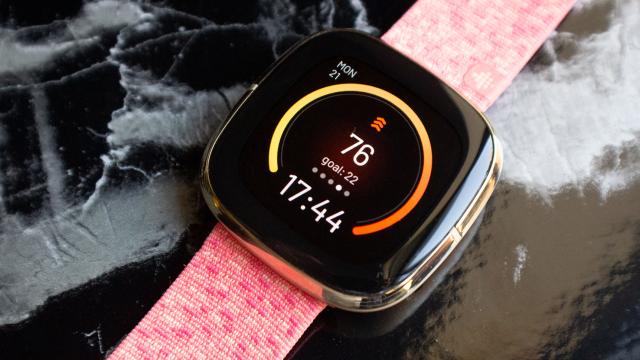Last year, Google announced it was going to acquire Fitbit for a whopping $US2.1 ($3) billion. Immediately, the news raised privacy concerns as Google is a tech giant with a lot of ad data on the cusp of absorbing another company with a hoard of health data. The deal itself has been under some intense scrutiny from regulators, but today the EU said it’s granted conditional approval.
For context, the EU raised a stink early on about the potential merger. Back in February, the European Data Protection Board warned that the acquisition was a major privacy risk and stressed that the merger would have to comply with the EU’s GDPR rules. Google then tried to coax regulators into approving the deal by promising it wouldn’t use Fitbit’s health data for targeted advertising. EU regulators shot back by launching an anti-trust probe into the deal over the summer.
[referenced id=”1659099″ url=”https://gizmodo.com.au/2020/12/genius-media-group-is-suing-google-for-antitrust/” thumb=”https://gizmodo.com.au/wp-content/uploads/2020/12/17/drzt7jltwfhe1wpiz0t6-300×168.jpg” title=”Genius Media Group Is Suing Google For Antitrust” excerpt=”Joining the national pile-on of entities suing Google for antitrust is Genius Media Group, which announced a lawsuit on Wednesday night related to the search giant’s ad exchange practices.”]
The EU’s approval, however, comes with some fine print. For starters, Google has to make good on its promise not to use Fitbit health and GPS data in targeted ads. Google also has to “maintain a technical separation” or a “data silo” for Fitbit data that’s separate from Google ad data. On top of that, users in the European Economic Area (EEA) must be given a choice to opt in or out of sharing their health and wellness data with other Google services, such as Google Search, Google Maps, Google Assistant, or YouTube.
The EU also specifically noted that Google would have to maintain Fitbit’s web API, as well as the Android API, to maintain healthy competition in the wearable field. (That’s good for Wear OS stans and third-party Wear OS smartwatch makers.)
Google has to maintain these commitments for 10 years, and because Google is such a huge player in digital advertising, the EU also stated it had the right to further extend these conditions for an additional 10 years.
This is good news for Google (and Fitbit), as it means it’s cleared a major regulatory hurdle and is one step closer to owning all of Fitbit’s sweet, sweet tech. However, it still has to convince other regulators in several other countries. The Australian Competition and Consumer Commission has also been looking into the deal. Late last month, it published three proposals meant to address privacy concerns that are very similar to the EU’s conditions, including a 10-year moratorium on using Fitbit data for targeted ads and maintaining third-party access.
The biggest hurdle for Google might come from the U.S. In October, the Department of Justice and 11 states filed an antitrust lawsuit against Google. It’s also possible that Google could be slammed with yet another antitrust lawsuit from another coalition of states as early as today. While these suits are focused on Google’s dominance in digital advertising and search, it might be hard to get U.S. regulators to turn a blind eye in this climate. Still, the EU approving the deal — even with caveats — might tip the scale in Google’s favour.
For what it’s worth, Alphabet, Google’s parent company, doesn’t seem too worried. Alphabet CFO Ruth Porat told Bloomberg that she expects the deal to be completed by the end of the year.
“We do still expect we are going to receive the necessary regulatory approvals to hopefully complete the transaction before the end of this year,” Porat told Bloomberg.
That said, it is possible it could take a bit longer, as the merger deadline was extended in a filing until February 2021.
